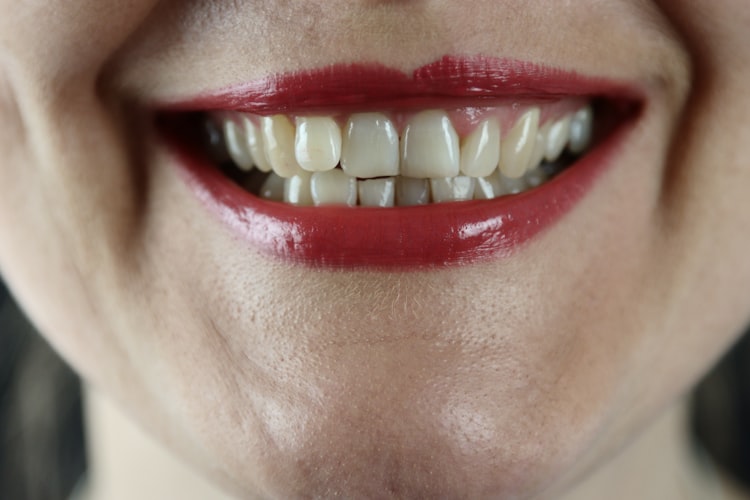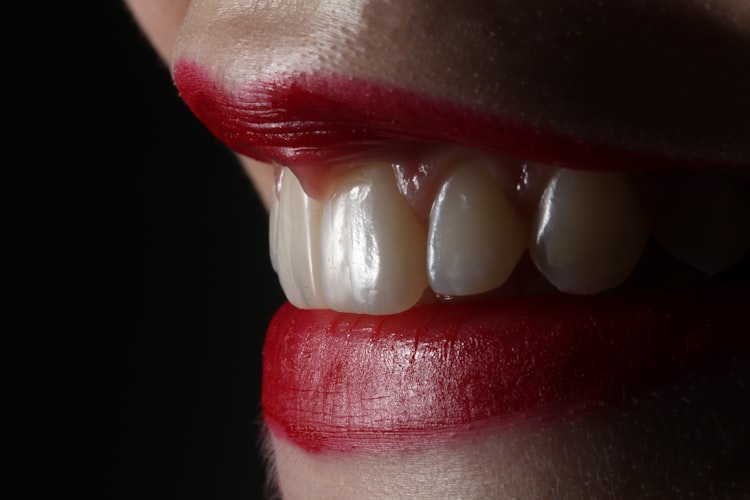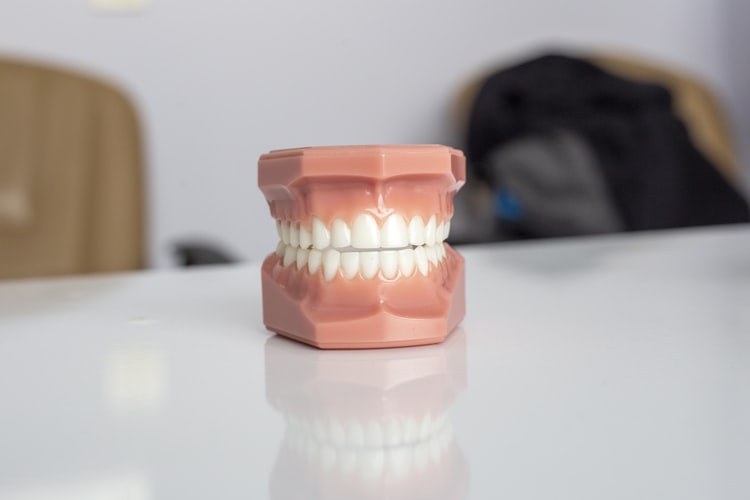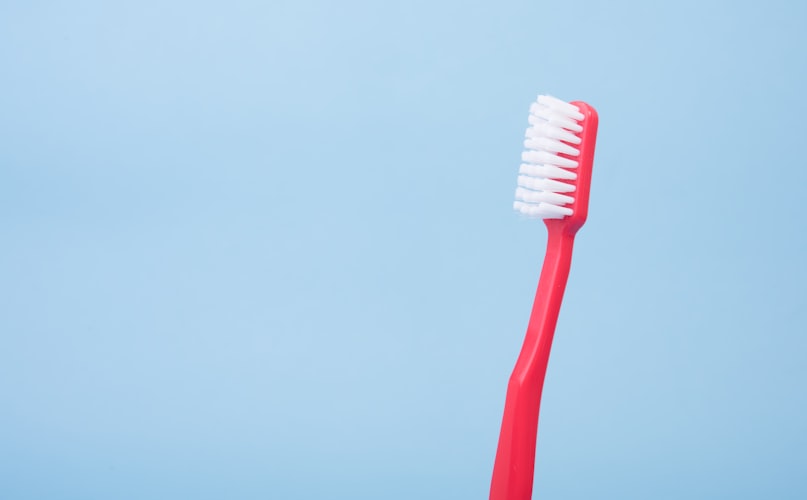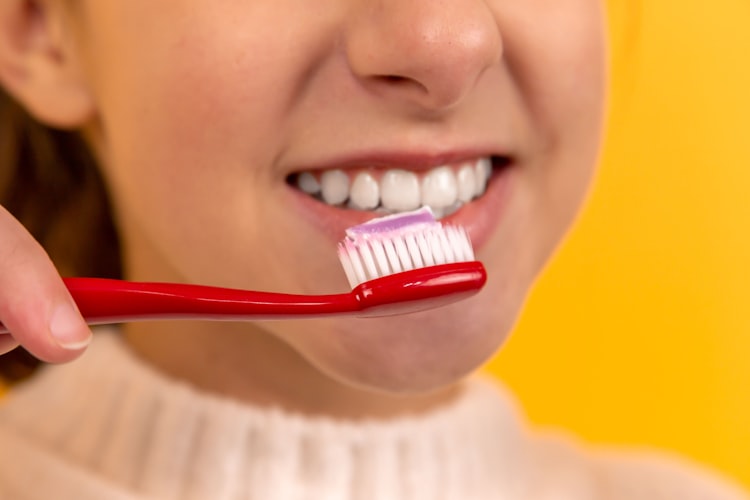
Brushing twice a day does not lead to whiter teeth for more than one reason. In order to whiten your teeth, you have to brush your teeth with toothpaste that contains hydrogen peroxide. Hydrogen peroxide is the active ingredient that is known to have whitening effects on your teeth and is usually what is used by dentists to whiten teeth.
When you consider the question ‘how to whiten teeth,’ some people are under the impression that if you brush your teeth better and longer and harder, your teeth would get whiter. This is actually quite false. In fact, brushing your teeth using too hard of a brush could actually cause your teeth enamel to get damaged. Hence, first and foremost, before we understand how to whiten teeth, we should first work to dispel some of the myths out there about brushing and white teeth.
Brushing and White Teeth
Brushing your teeth for a longer period of time or using a harder brush won’t help you whiten your teeth. The trick is in the toothpaste that you use. If you are using a toothpaste that does not contain hydrogen peroxide, then no matter how often you brush and how well you brush your teeth, your teeth will simply not get any whiter.
Hydrogen peroxide is the active ingredient in toothpaste that works to whiten teeth. In fact, when you go to the dentist to whiten your teeth, they actually use a hydrogen peroxide solution in the whitening process. The truth of the matter is, a toothpaste containing hydrogen peroxide will help you whiten your teeth, however, it won’t happen instantaneously, nor can results be assured. For assured results on whiter teeth, you should always opt for professional whitening through a dentist.
Brushing your teeth twice a day is considered essential and is recommended by dentists; for it enables the removal of plaque and prevents cavities. However, the bristle action of the toothbrush alone won’t help whiten your teeth. In fact, using whitening toothpaste only has a limited effect on the surface of the teeth.
So if brushing your teeth as recommended does not lead to whiter teeth, how do you go about whitening your teeth at home? There are actually various things that you can try at home to whiten your teeth. As with anything, let’s consider the natural means of whitening your teeth first. So let’s dive a little deeper and consider what you can do to naturally whiten teeth.
How to Naturally Whiten Teeth
There are many whitening products that you can choose from in the market. In fact, the at-home teeth whitening market is worth about $1.4 billion.
With this many options when it comes to teeth whitening, why consider the natural means to whiten teeth. Well, though the level of convenience with buying a home whitening kit is greater, most of these products use chemicals to bleach your teeth, which is a point of concern for some people.
There are a few things that you can try when you are trying to naturally whiten your teeth. Let’s look at each one, as we explain just what you need and how you are to go about achieving whiter teeth this way.
1. Use Hydrogen Peroxide
Hydrogen peroxide actually works really well in keeping your teeth clean. As mentioned prior, it is one of the components relied on by dentists to whiten teeth.
Hydrogen peroxide is a natural bleaching agent which works to directly whiten teeth. When trying to whiten your teeth naturally, hydrogen peroxide is one of the more relied upon remedies.
Commercial whitening products actually contain hydrogen peroxide which is usually at a higher concentration than the hydrogen peroxide you will use. A study found that a toothpaste containing baking soda and 1% hydrogen peroxide actually led to significantly whiter teeth.
Using hydrogen peroxide actually comes with a safety tag attached to it. Though using heavily diluted concentrations of hydrogen peroxide is considered safe, using strong concentrations or overusing it can lead to gum irritation and tooth sensitivity. A study also led to prove that using high concentrations can lead to cancer.
The best way to use hydrogen peroxide is at a concentration of 1.5% to 3%. The hydrogen peroxide that you find in drugstores is usually 3% solutions. Hence, in order to use, simply mix equal parts with water and use it as a mouthwash before brushing.
You can also use hydrogen peroxide in another way. Simply mix it with baking soda to make a toothpaste. Combine 2 teaspoons of hydrogen peroxide with 1 teaspoon of baking soda and use the mixture to gently brush your teeth.
As a word of warning, use the homemade paste a few times per week and don’t overuse it. Overuse may lead to erosion of tooth enamel.
2. Use Baking Soda
Baking soda is a popular ingredient in commercial toothpaste for the reason that it has natural whitening properties.
Baking soda is mildly abrasive, which enables the scrubbing off of surface stains on your teeth. Further to this, the alkaline environment created in your mouth by baking soda actually works to prevent the growth of bacteria.
This remedy doesn’t show fast results. In fact, if you are looking for overnight results, this would not work. However, over time, with continued use, you should start to notice results.
Though the science on using baking soda is not conclusive, studies have shown that toothpaste that contains baking soda works much better at whitening teeth. Hence, if you prefer, you could simply opt to check the toothpaste that you use and ensure that you are using something that contains baking soda.
To use this remedy, simply mix 1 teaspoon of baking soda with 2 teaspoons of water and use the paste to brush your teeth. You can use this remedy a few times per week.
3. Try Oil Pulling
Oil pulling is a traditional Indian folk remedy that is intended to help better oral hygiene. It involves swishing oil in your mouth to remove bacteria.
Traditionally, Indians relied on sunflower oil or sesame oil, however, any oil works. Coconut oil in particular is considered a popular choice for its aroma and taste. Daily oil pulling can help reduce bacteria in the mouth which results in lower instances of plaque build-up and gingivitis.
Though oil pulling can for certain help maintain better oral health, there is insufficient proof to illustrate that it can lead to whiter teeth. However, it is a natural and safe practice that won’t hurt you and is definitely something that is worth a try. There are many people who claim that their teeth were whiter and brighter after making oil pulling a practice.
Simply put 1 tablespoon of coconut oil in your mouth and push and pull the oil through your teeth. You should continue this action for about 15 to 20 minutes for the best results.
Unlike some of the other natural methods that we discussed in this section of the article, using coconut oil does not expose your teeth to acid or other ingredients that erode your enamel. Hence it is something that you can try every day and it is considered safe to do so.
4. Fruits and Vegetables
If your diet does not contain a wholesome amount of fruits and vegetables, this could be one of the primary reasons why you suffer from stained teeth. A diet rich in fruits and vegetables has been known to be good for the body, in particular your teeth.
Though there is no real substitute for brushing your teeth, chewing on crunchy and raw fruits and vegetables can actually work to help rub plaque away. The action of eating fruits and vegetables actually works to help clean your teeth. However, do they actually work to whiten teeth?
If they didn’t actually work to whiten teeth, we wouldn’t have included them in this section of the article, would we? When considering naturally whitening your teeth, you have to remember two fruits, in particular, strawberries and pineapples.
Strawberries
A mixture of strawberries and baking soda has been considered a natural remedy to whiter teeth by many celebrities. The science behind this claim is that the malic acid that is found in strawberries actually works to remove discolouration of your teeth, while the baking soda works to remove stains. That being the case, this method hasn’t been completely backed by science. In comparison to using commercial whitening products, this natural method actually didn’t show significant results.
That being the case, you can always consider using this method and checking the results for yourself. If you do decide to give this remedy a shot, limit yourself to not use this method more than a few times per week. Excessive use could work to damage your teeth. Simply squash a fresh strawberry and combine it with baking soda and use the mixture to brush your teeth.
Pineapple
Toothpaste containing bromelain has been studied to show significant results at removing tooth stains in comparison to toothpaste that didn’t contain bromelain.
Bromelain is an enzyme that is naturally found in pineapples. Now, there is no real evidence as to whether simply eating more pineapples actually leads to whiter teeth. However, some people claim that pineapple can help whiten teeth.
As mentioned prior, eating fruits and vegetables can help you whiten your teeth and keep them healthy. It doesn’t hurt to eat more pineapple and hope that it has some impact on the colour of your teeth.
The Fastest Ways to Whiten Teeth
Using baking soda and lemon juice, you could whiten your teeth in a matter of minutes. Take a few teaspoons of baking soda on a small plate and squeeze some fresh lemon juice into it. Keep adding lemon juice until you have a fine paste. Dry your teeth of extra saliva and then take the paste and apply it on your teeth and let it sit on your teeth for a minute. Do not let it sit any longer than a minute, for it could lead to enamel erosion. After a minute, rinse your mouth and you are done.
There are a few more techniques that you can rely on for fast results. Banana peel is usually something that you throw out after you consume the fruit. However, banana peel can actually work to help whiten your teeth. Simply rub the white side of the peel on your teeth for a few minutes and then brush your teeth like you normally would. If you do this two or three times a week, you could notice results.
Another technique uses mustard oil and salt. The mixture works to whiten your teeth and also helps kill harmful bacteria in your mouth. The mixture works as a perfect natural whitener. Simply use one part salt and three parts mustard oil and rub the mixture onto your teeth for a few minutes. You can either use your fingers or your toothbrush, whichever you prefer. Do this for three minutes and you should be able to notice some results straight away.
When it comes to whitening your teeth, everyone is impatient to see results. I’m sure if you could, you would whiten your teeth in 5 minutes or less. If there was a way to whiten your teeth fast, you would probably try that first. So go ahead, give these remedies a try!
How to Whiten Teeth at Home
There are a few things that you can do in the comfort of your home to whiten your teeth. You could rely on baking soda, hydrogen peroxide, mustard oil and even banana peels. You could even consider one of the many at-home whitening kits that are commercially available which have been proven to show results.
After having read this word to word so far, you should have come across the various options that you have at hand at whitening your teeth at home. The only downside to whitening your teeth at home is, most of the remedies that have been mentioned in this article takes some time to show results. Hence, don’t expect immediate results if you are trying to do this at home.
That being the case, there are some techniques that could work to show quick results. However, if you don’t mind the chemical bleaching process of commercial teeth whiteners, you can always try them out, in the comfort of your home. Try everything at hand first and if nothing works, book an appointment with a dentist and have them professionally whitened.
Does Whitening Damage Teeth?
Teeth whitening can damage your teeth depending on the method that you use and what you use to whiten your teeth. Using hydrogen peroxide or baking soda too often to whiten your teeth could cause your tooth enamel to decay, thus causing permanent damage to your teeth.
On the contrary, using methods like banana peels and oil pulling doesn’t really work to erode your teeth. These methods can be opted on a daily basis to show results over time.
The major risk factor behind commercial teeth whitening kits is the concentration of hydrogen peroxide that they use. High concentrations of hydrogen peroxide could cause various problems such as burns to the gums, damage to nerves and the tooth enamel. This is why many people opt for more natural means to consider when whitening teeth.
That being the case, as mentioned prior, you should avoid overusing natural methods such as baking soda and hydrogen peroxide treatment to ensure that you don’t damage your teeth.
How to Prevent Tooth Staining (Discolouration)
When it comes to treatment, they say that prevention is better than cure. Hence while trying to whiten your teeth, you should also make use of the information at hand to help prevent further tooth staining. Don’t simply rely on tooth whitening techniques. Incorporate prevention into your treatment and you are sure to observe more noticeable and longer-term results.
There are certain things that can stain your teeth. For instance, the food and drinks that you consume have a direct correlation with the colour of your teeth. Coffee, tea and colas have been identified to stain your teeth. Even certain fruits and vegetables such as apples and potatoes can cause you to stain your teeth.
Smoking is another habit that can lead to stained teeth. Chewing tobacco or smoking can both lead to teeth staining. Hence before you consider whitening your teeth, address this issue first.
Another reason for stained teeth could be poor dental hygiene. Simply not brushing your teeth, or flossing or not rinsing enough could lead to the build-up of plaque and other stain producing substances.
Antibiotics, ageing, environment and even trauma can cause tooth discolouration. For instance, excessive fluoride in your natural water sources could cause tooth discolouration.
As a word of warning, when you are trying to whiten your teeth, be on the lookout for these items in particular. If you find yourself enjoying anything on this list, make sure to brush your teeth after, or rinse your mouth to prevent stain formation on your teeth.
- Tomato sauce
- Soy sauce
- Beets
- Grape or cranberry juice
- Blueberries
- Beets
- Red and white wine
- Soda
- Coffee and tea
How to Whiten Teeth
Well there you go, we have covered the various aspects of teeth cleaning from natural methods at home, to over the counter whitening agents. When you are considering buying whitening products, always go with recognised brands and check the concentrations of ingredients in the whiteners.
If you prefer, you can even buy an in-home whitening agent from your dentist. Otherwise, you could make an appointment with your dentist to have them professionally whitened. Regardless of what method you opt for, you should learn to keep your teeth white and clean for as long as possible. This means, brushing your teeth after eating staining food and ensuring that you maintain a good oral hygiene routine.
All in all, we hope that after reading this word to word, you have at hand a few things that you can try at home. Though some would probably take some time to show results, it doesn’t hurt to rub your teeth with that banana peel that you were going to throw away anyway.
We hope that you found this article useful and that reading this word to word has helped you find the answers to the questions you had in mind.
Happy Whitening!



